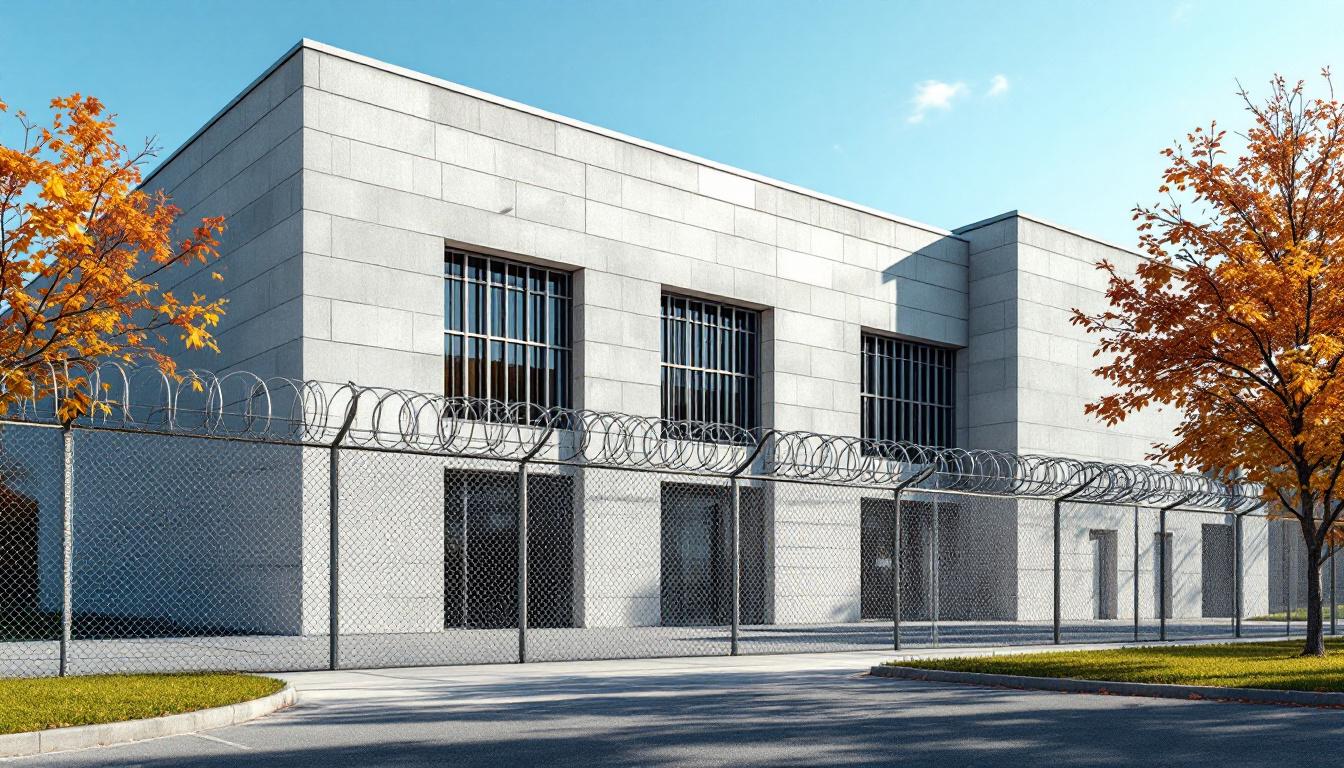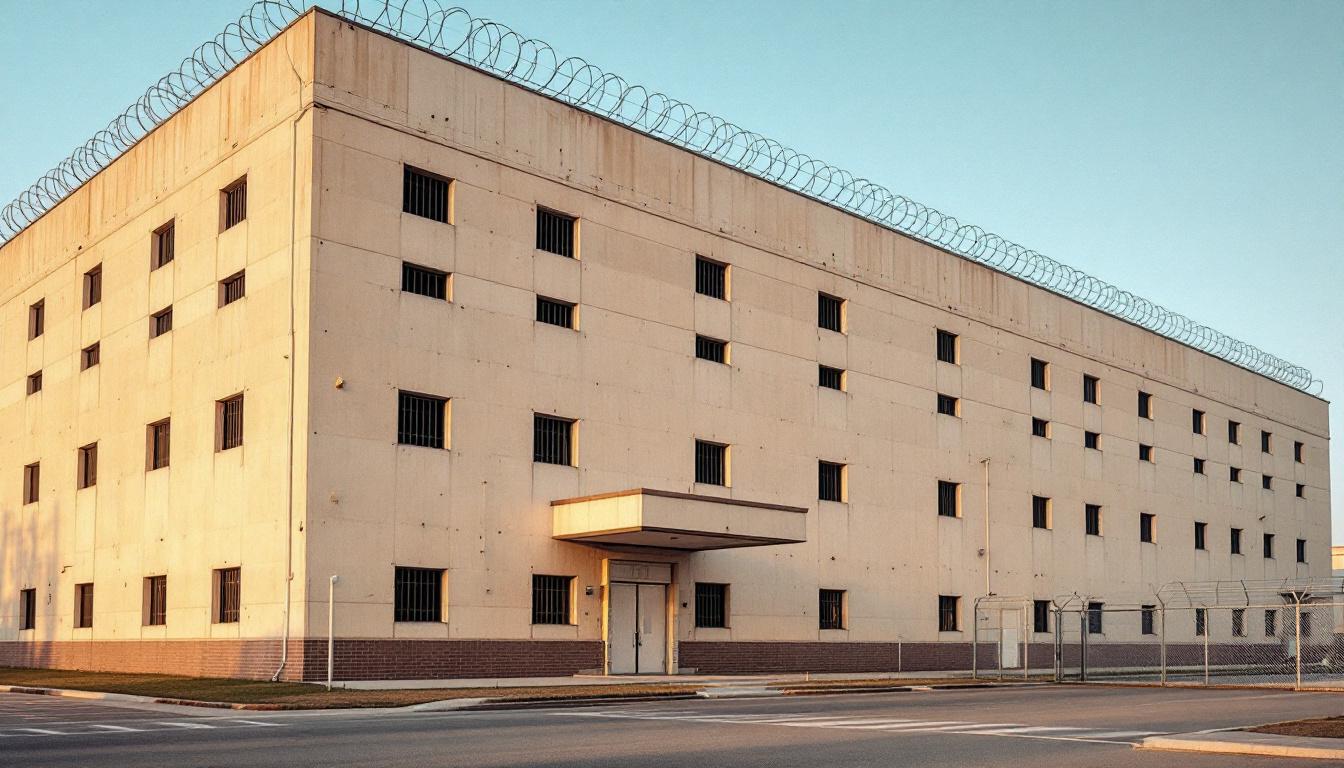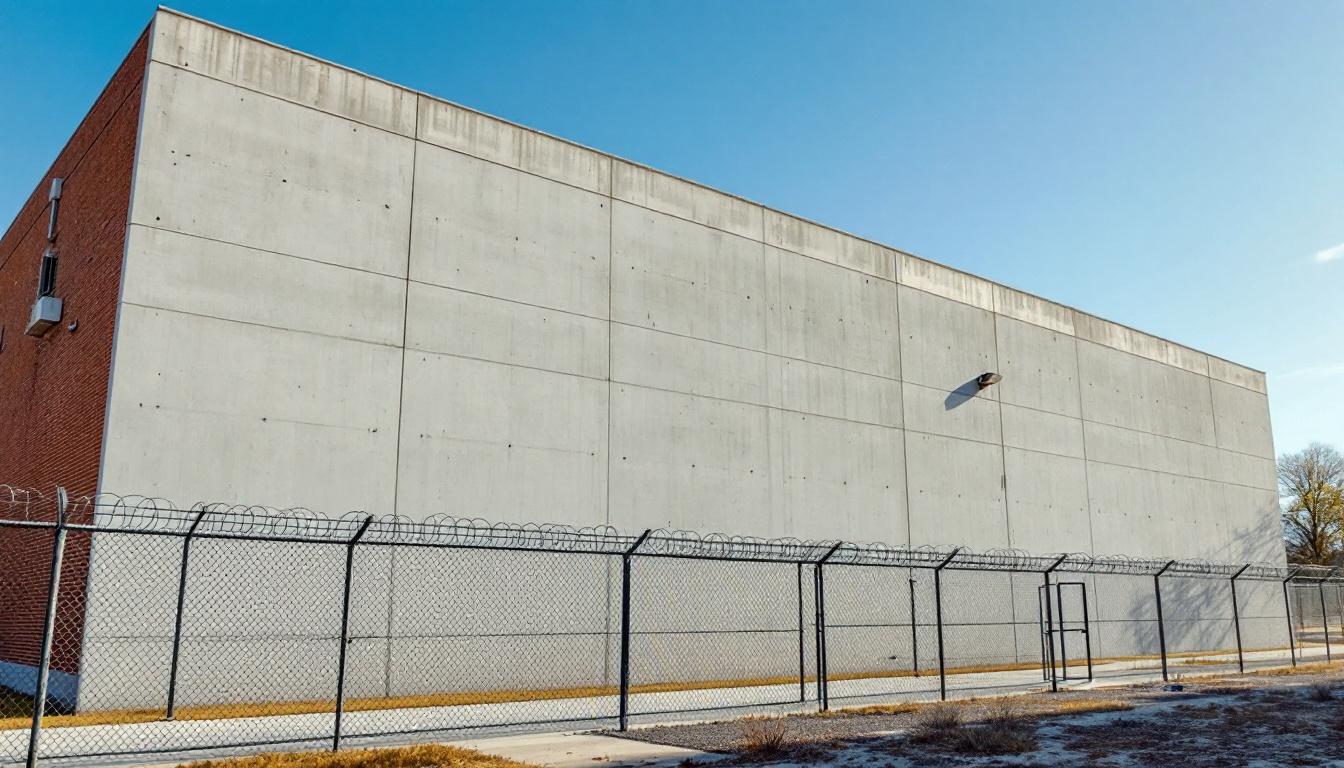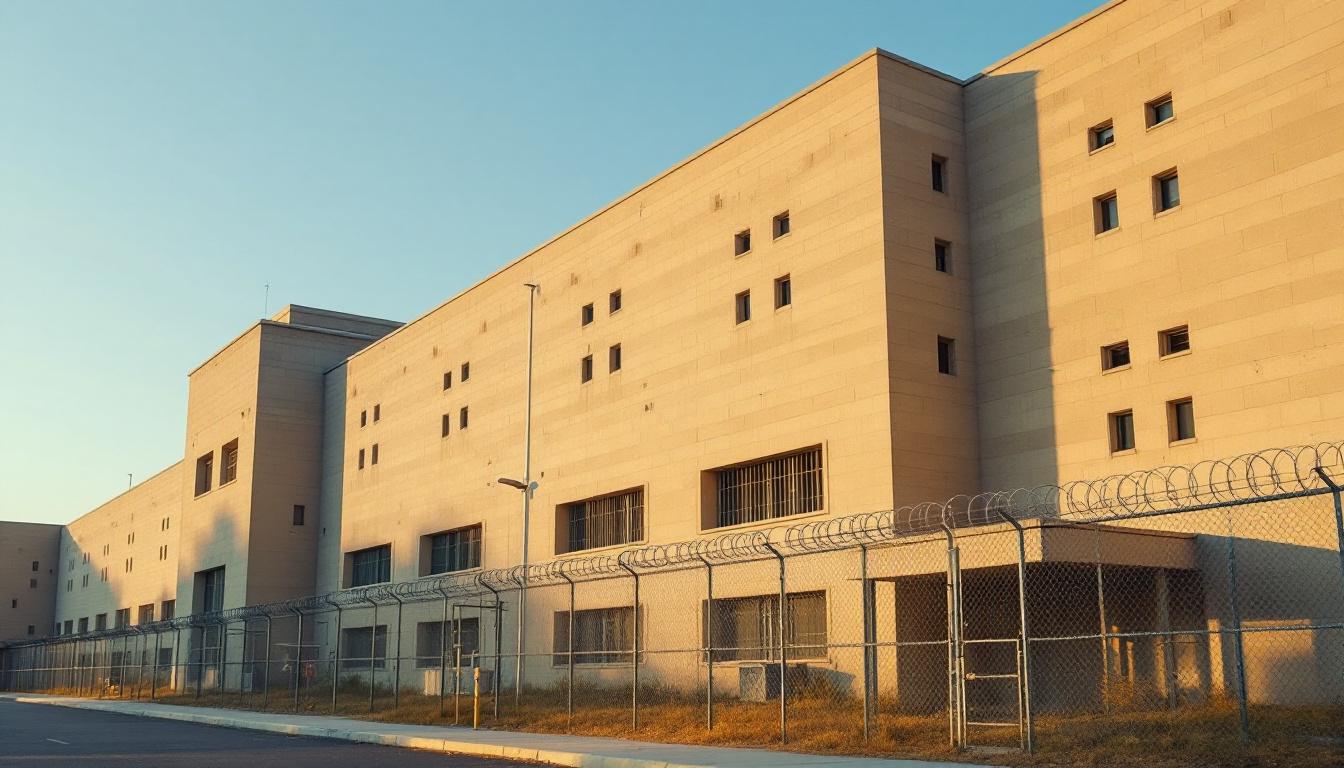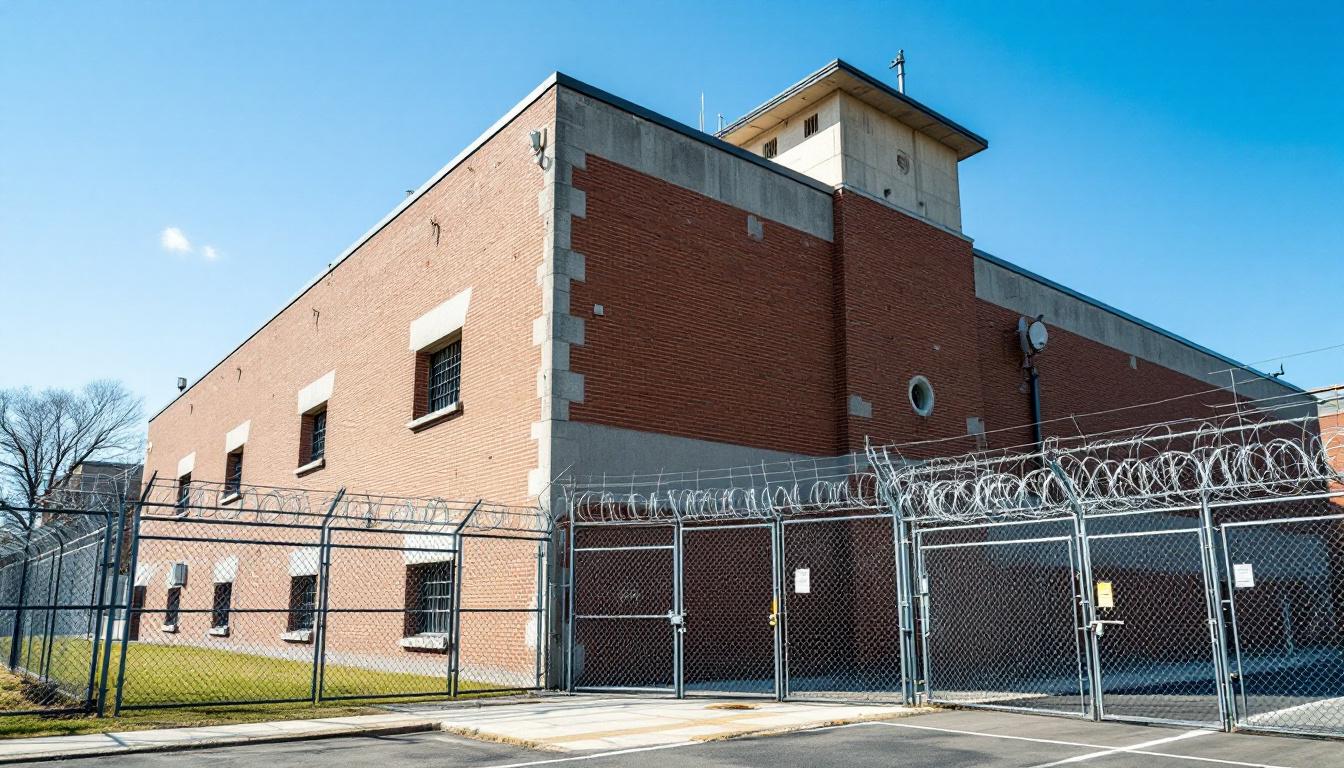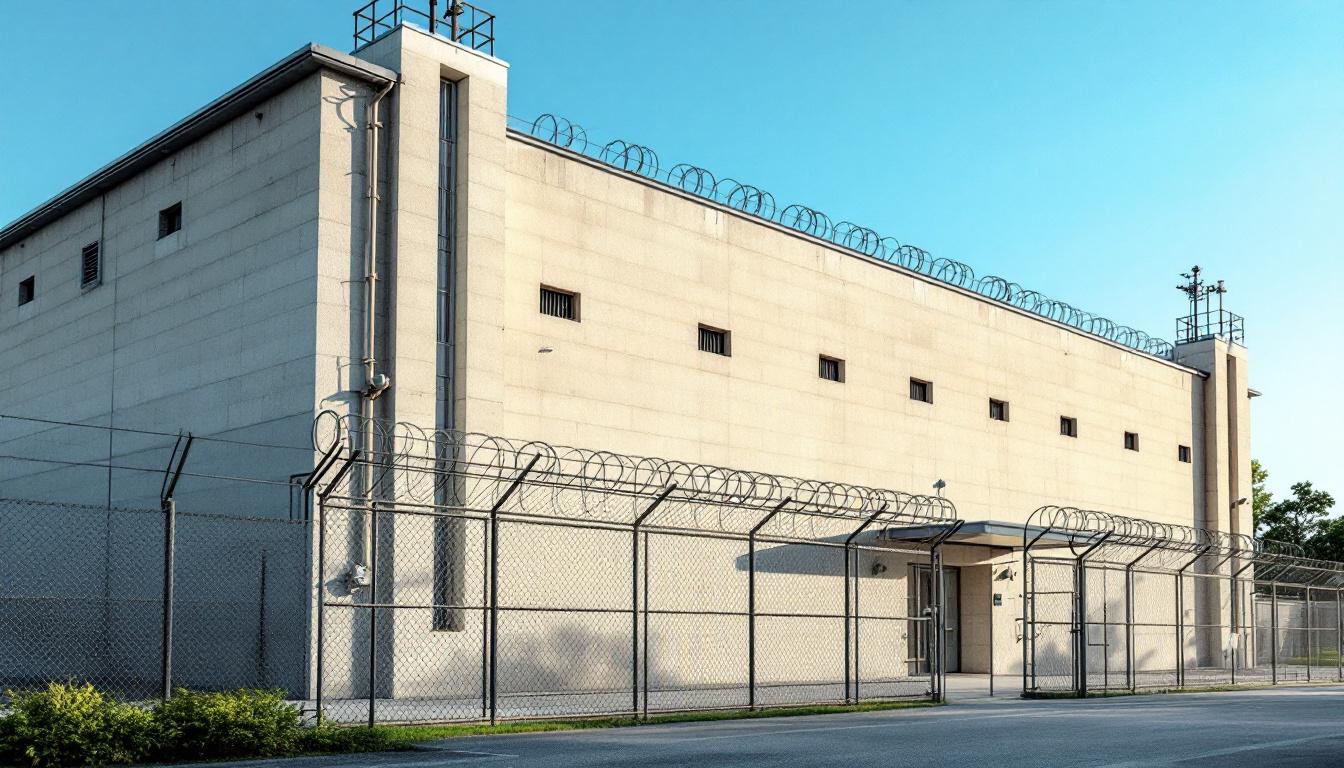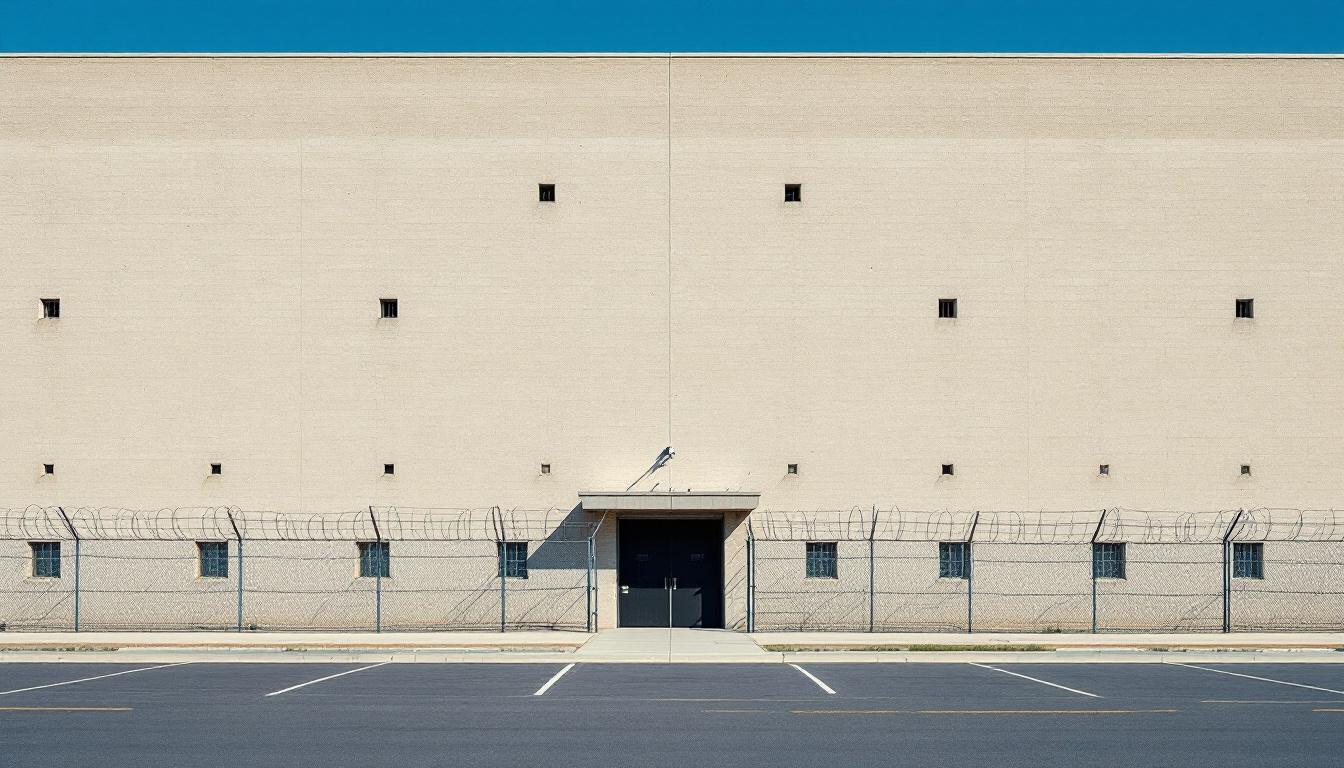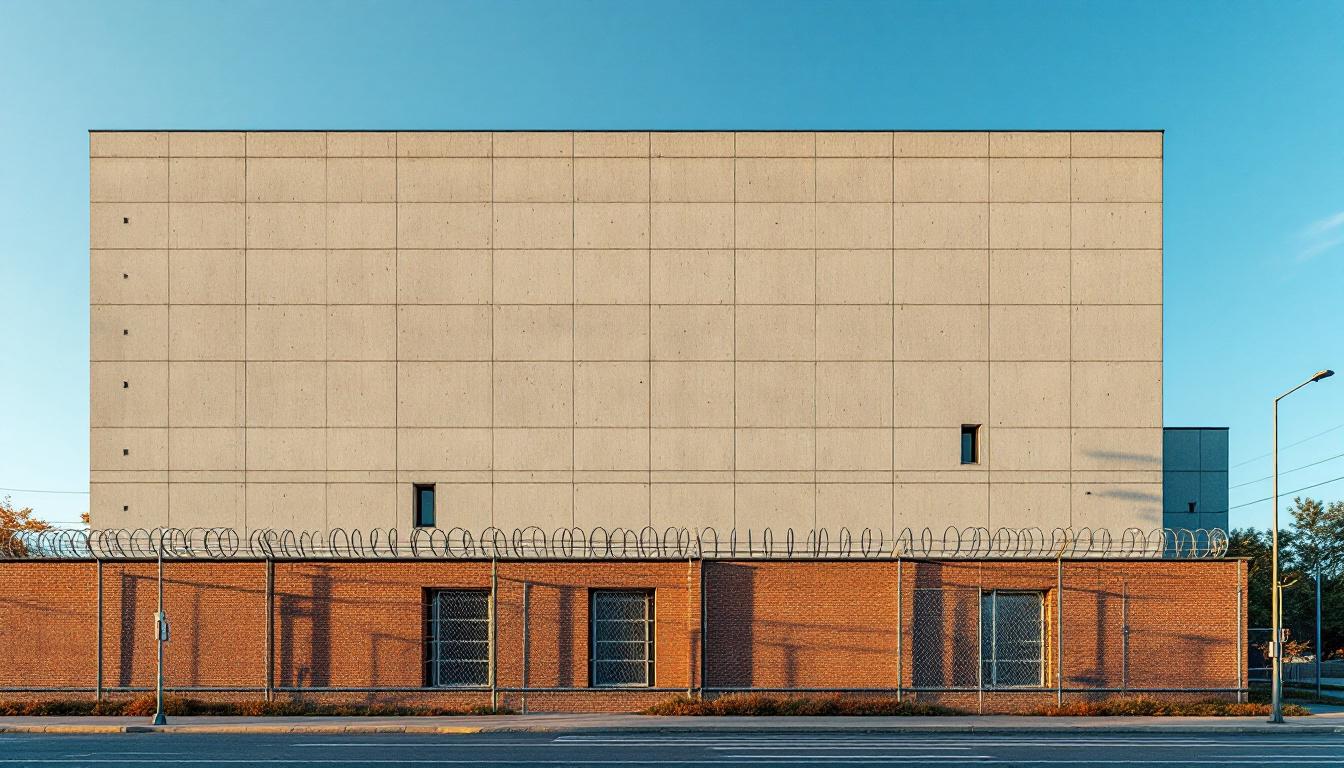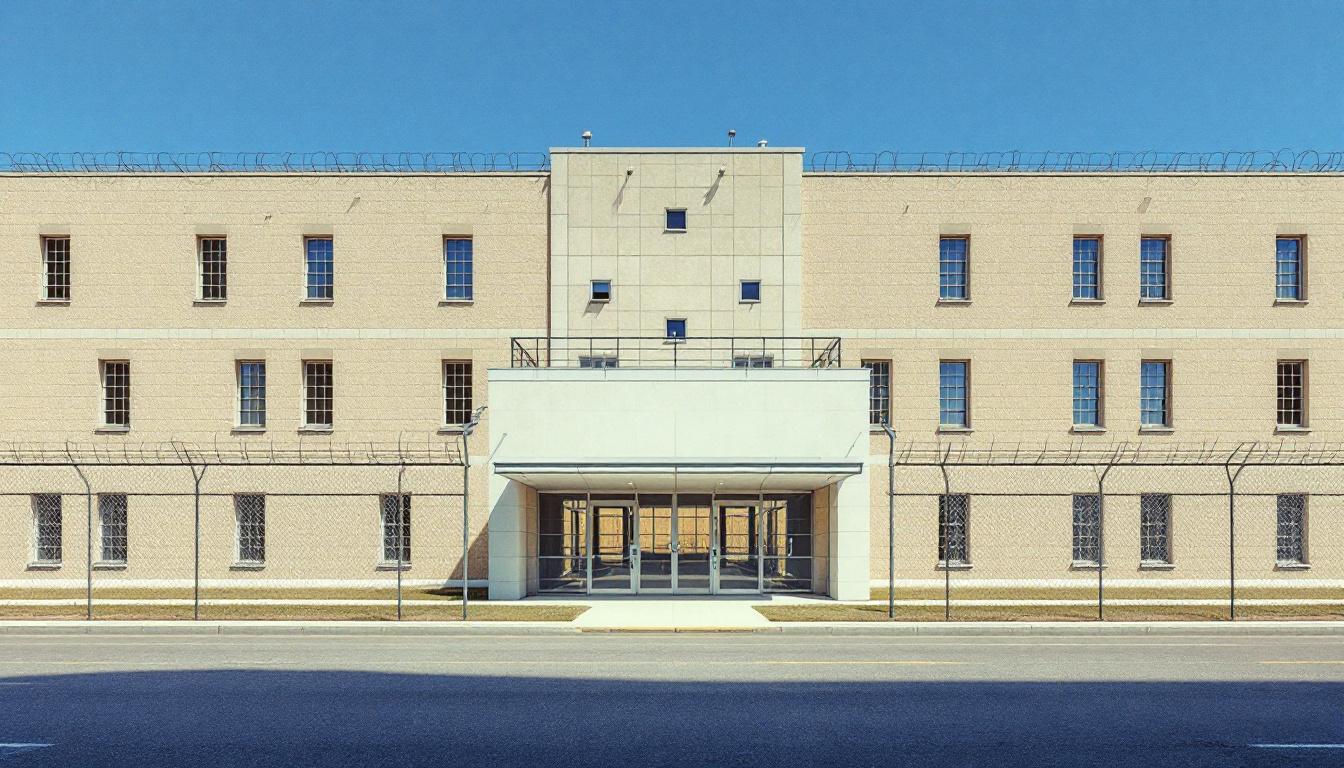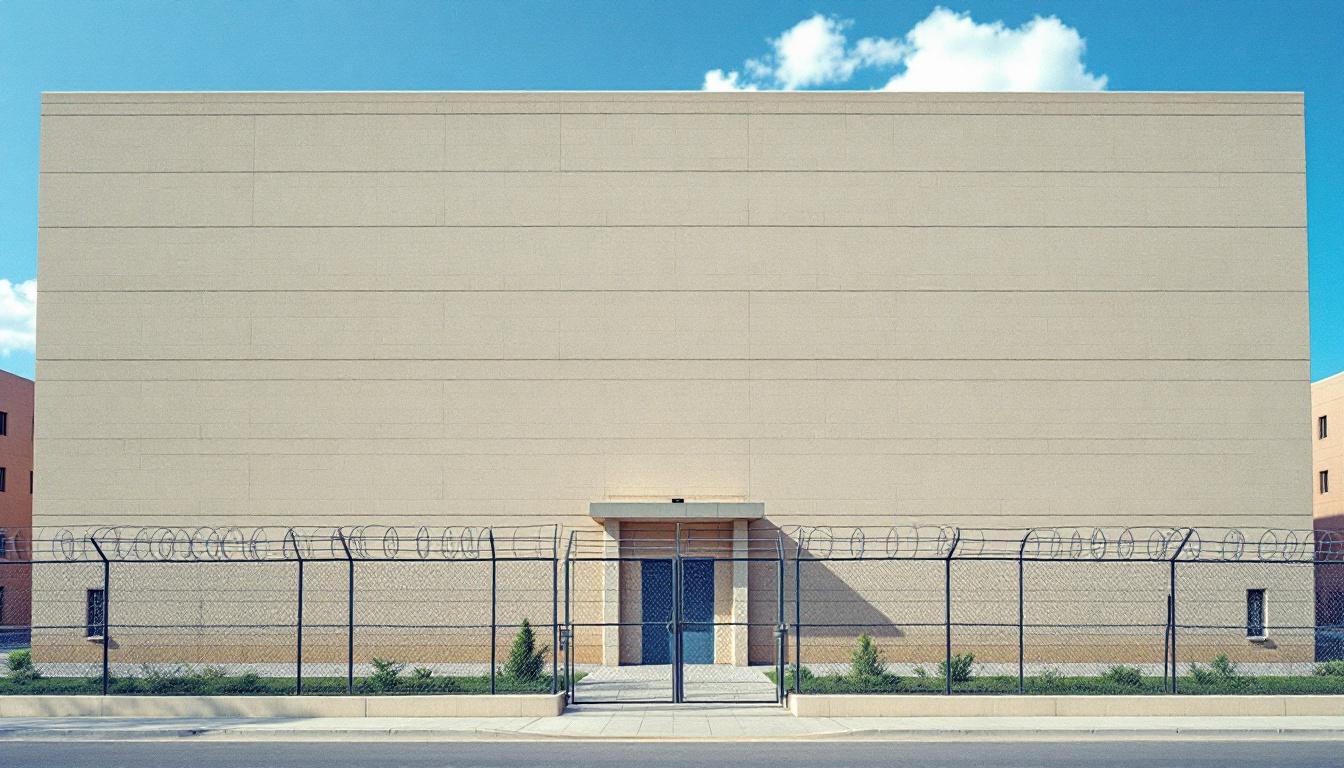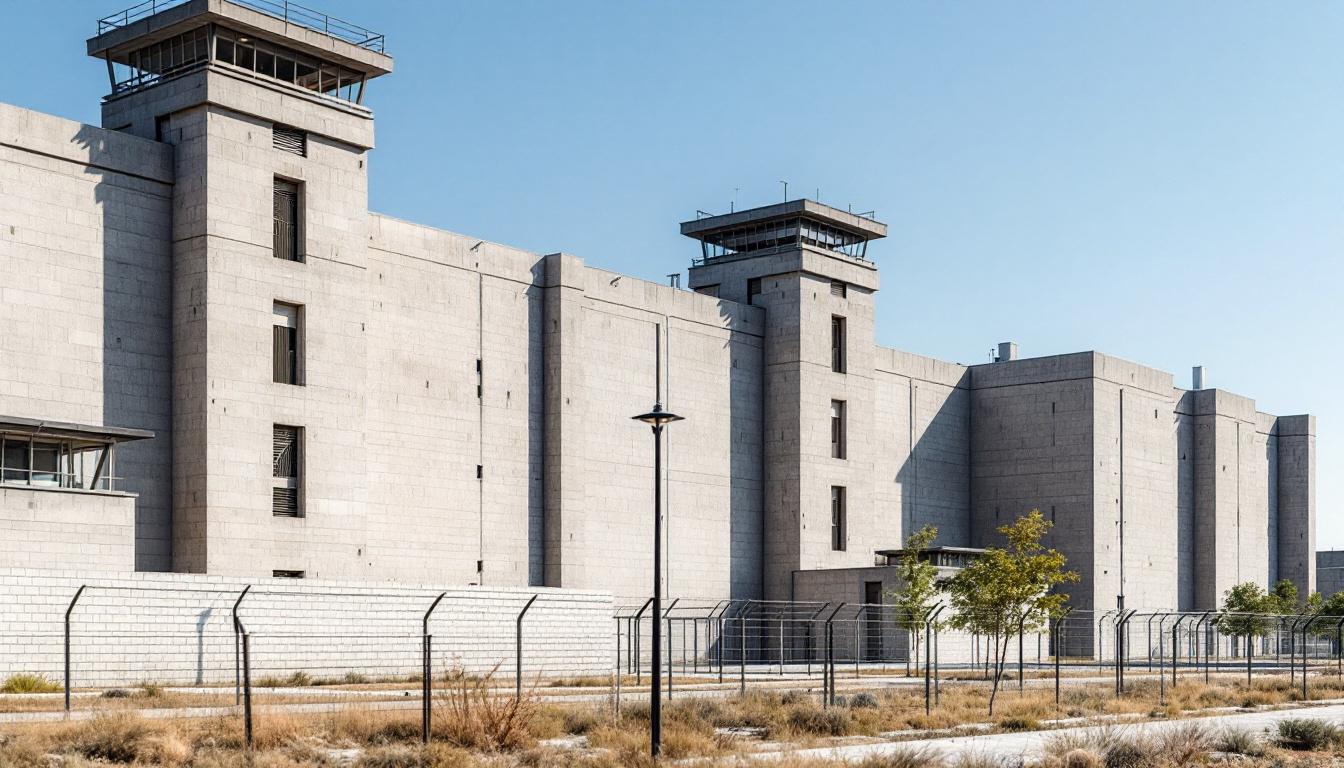
Quick Navigation
How to contact an inmate at Lafayette County Jail
This comprehensive guide will walk you through how to connect with an inmate at Lafayette County Jail. Follow the steps below to find an inmate and send letters and photos:
- Search for the inmate using our search tool below
- Create your account or log in to Penmate
- Write your message (up to 6,000 characters)
- Send instantly - inmates receive printed copies daily
Find an Inmate
Search for an inmate to start communicating today
Tip: You can search by first name, last name, or inmate ID number
To contact a person at Lafayette County Jail start by searching for the person on the facility website. Perform a search by following these steps:
- Step 1: Enter their first name and last name into the search form and click "Search"
- Step 2: Locate their inmate record
- Step 3: Write down their Inmate ID and any housing information provided
Important! Be sure to enter the person's full name. Nicknames should not be used.
How to Send Messages to Inmates

You can use your phone or computer to send emails, letters, and photos to an inmate. Messages are sent electronically to inmate tablets or kiosks at the facility. If you would like to send a message, start by searching for an inmate at Lafayette County Jail.
Sending Photos and Postcards

A great way to send love and support to a loved one at Lafayette County Jail is to send photos and postcards. It only takes a few minutes to send photos from your phone and it makes a huge difference. You can also mail postcards with words of support and inspiration, or design your own postcard for special moments like birthdays and holidays.
Important! Be sure not to send any explicit photos or they may not be approved by the facility. You can also use a photo printing app like Penmate to make sure your photos are printed at the correct size (4x6 or 3x5) and are mailed according to the rules and regulations of Lafayette County Jail.
Frequently asked questions about Lafayette County Jail
-
How long does it take to deliver a message?
If you're sending an email message your letter is usually delivered within 24-48 hours. For messages sent via mail you should expect delivery within 3-7 days. All messages will need be approved by Lafayette County Jail.
-
How much does it cost to send a message to Lafayette County Jail?
You can send a message free using your phone or mail a message via USPS for the price of a $0.60 stamp and envelope. You can also purchase credits or e-stamps from services starting at $1.99.
-
What services can I use to contact an inmate at Lafayette County Jail?
Penmate
You can use Penmate to send letters and photos to an inmate from your phone. It's an easy way to stay in touch during your loved one's incarceration. Use the inmate locator to find an inmate's location and contact information, then you can send messages within a few minutes.
Securus messaging
Securus may be another option for communicating with an inmate at Lafayette County Jail. You can create a friends and family account and purchase credits to send messages. All messages will be reviewed and must be approved by the facility.
JPay
Some county jails and state prisons may support sending messages with JPay. You must register an account with the system, find your loved one, and purchase stamps to send messages. For some locations you can also attach photos.
Smart Jail Mail
You may also check if Smart Jail Mail is available at Lafayette County Jail. Smart Jail Mail is operated by Smart Communications and has contracted with some state and county jails. After purchasing credits, your messages and photos are sent to the facility, printed out, and then handed out to your loved one.
-
What is the mailing address of Lafayette County Jail?
Mailing address:
Lafayette County Jail
178 NW Crawford St
Mayo, FL 32066
Phone: (386) 294-1301 -
What are the visiting hours at Lafayette County Jail?
Visiting hours at Lafayette County Jail vary by housing unit and security level. Generally, visits are scheduled on weekends and holidays, with some facilities offering weekday visits. Contact the facility directly at (386) 294-1301 or check their website for the current visiting schedule. Visits typically last 30-60 minutes and must be scheduled in advance.
-
What items are prohibited when sending mail to Lafayette County Jail?
Prohibited items typically include: cash, personal checks, stamps, stickers, glitter, glue, tape, staples, paperclips, polaroid photos, musical or blank greeting cards, hardcover books, magazines with staples, and any items containing metal or electronics. Only send letters on plain white paper with blue or black ink. Photos must be printed on regular photo paper (no Polaroids). Always check with Lafayette County Jail for their specific mail policies.
-
How do I send money to an inmate at Lafayette County Jail?
You can send money to an inmate at Lafayette County Jail through several methods: 1) Online using JPay, Access Corrections, or the facility's approved vendor, 2) Money orders mailed directly to the facility with the inmate's name and ID number, 3) Kiosks located in the facility lobby, or 4) Over the phone using a credit or debit card. Fees vary by method, typically ranging from $2.95 to $11.95 per transaction.
-
Can I schedule a video visit with an inmate at Lafayette County Jail?
Many facilities now offer video visitation as an alternative to in-person visits. At Lafayette County Jail, video visits may be available through services like Penmate, Securus Video Connect, GTL, or ICSolutions. Video visits typically cost $10-20 for 20-30 minutes and must be scheduled in advance. You'll need a computer or smartphone with a camera and reliable internet connection. Contact the facility for their specific video visitation policies and approved vendors.
-
What identification do I need to visit an inmate at Lafayette County Jail?
All visitors must present valid government-issued photo identification such as a driver's license, state ID, passport, or military ID. Minors must be accompanied by a parent or legal guardian who can provide the minor's birth certificate. Some facilities require visitors to be on the inmate's approved visitation list, which may require a background check. Contact Lafayette County Jail for specific ID requirements and visitor approval procedures.
-
How can I find out an inmate's release date?
To find an inmate's release date at Lafayette County Jail, you can: 1) Use the online inmate search tool if available, 2) Call the facility's records department, 3) Contact the inmate's case manager or counselor, or 4) Have the inmate provide this information during a call or visit. For privacy reasons, some facilities only release this information to immediate family members.
Facility Overview

About Lafayette County Jail
Nestled in the rural heart of Mayo, Florida, this correctional facility serves as Lafayette County's primary detention center, providing secure housing and comprehensive services for individuals awaiting trial or serving shorter sentences. The Lafayette County Jail, FL operates within the broader framework of Florida's county-based correctional system, typically maintaining close coordination with local courts, law enforcement agencies, and community organizations to ensure effective case management and public safety.
The facility generally emphasizes an evidence-based approach to offender management and support, recognizing that successful reintegration into the Mayo community often depends on addressing underlying factors that may contribute to criminal behavior. Residents services typically include access to educational programming, substance abuse counseling, and vocational training opportunities designed to build practical skills for post-release employment. The FL correctional facility may also offer mental health support, religious services, and family visitation programs that help maintain important community connections during incarceration.
As a county jail serving Lafayette County's rural population, the facility often works closely with local service providers and community stakeholders to develop comprehensive discharge planning and transitional support services. This community-centered approach generally includes coordination with local employers, housing assistance programs, and continuing education opportunities that help former residents successfully reestablish themselves in Mayo and surrounding areas. The jail's rehabilitation-focused programming typically reflects the understanding that effective correctional practices must address both immediate public safety concerns and long-term community well-being.
Programs & Services
**Substance abuse treatment initiatives form the cornerstone of rehabilitation efforts**, addressing one of the most significant factors contributing to recidivism. These therapeutic interventions typically include group counseling sessions, individual therapy, and educational components that help residents understand addiction patterns and develop coping strategies. The treatment approach often emphasizes building life skills and creating sustainable recovery plans that residents can continue upon release.
Educational initiatives may deliver basic literacy instruction, GED preparation, and vocational training opportunities that prepare residents for successful reintegration. These programs often include computer literacy courses and job readiness training that focus on resume writing, interview skills, and workplace expectations. In addition to this, electrical work training programs typically provide hands-on experience with wiring, circuit installation, and electrical safety protocols, giving residents valuable trade skills that are in high demand in the construction and maintenance industries.
Support services and community connections play a vital role in helping residents transition back into society. Work release initiatives may allow eligible residents to maintain employment while serving their sentences, helping them preserve family financial stability and professional relationships. Community resource connections often include partnerships with local service providers that assist with housing placement, healthcare access, and continued education opportunities. These comprehensive support systems typically work together to reduce the likelihood of reoffending by addressing the underlying challenges that residents face when returning to their communities.
Daily Life & Visitation
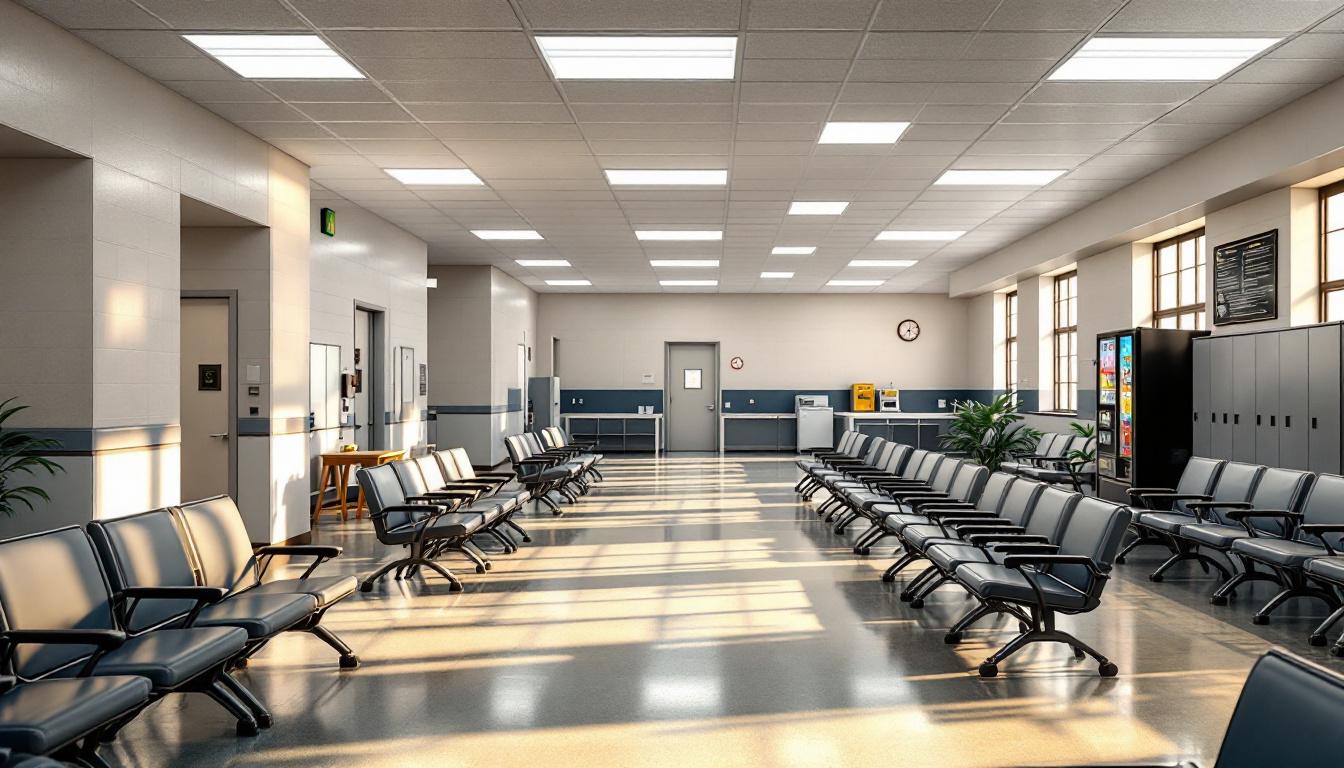
Structure and routine form the backbone of daily operations, with residents following a consistent schedule that begins early each morning and continues throughout the day. Today's activities typically include designated times for meals, recreation, work assignments, and various programming opportunities. This predictable framework helps residents maintain stability and purpose. Consistently scheduled activities deliver a sense of normalcy that many find beneficial during their time at the facility.
Living accommodations at Lafayette County Jail generally consist of housing units designed to accommodate multiple residents, with basic amenities including sleeping areas, restroom facilities, and common spaces. Residents typically receive three meals daily in designated dining areas, with menus planned to meet nutritional requirements. Personal property is usually limited to essential items, though residents may often access commissary services to purchase approved personal care items and snacks. In addition to this structured environment, security procedures are maintained throughout all areas to ensure safety for everyone.
Recreation and exercise opportunities may include outdoor time when weather permits, along with indoor activities and television access during designated hours. Work assignments within the facility often provide residents with meaningful tasks such as kitchen duties, cleaning responsibilities, or maintenance work. Despite this structured environment, family connections remain important through scheduled visitation periods and telephone privileges. Programming schedules typically deliver educational opportunities, substance abuse counseling, and other support services designed to help residents prepare for their eventual return to the community.
Ready to Connect?
Start communicating with your loved one today
Search for an Inmate
